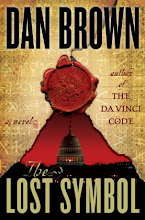I like philosophical questioning. I sincerely think Socrates is a genius by relentlessly questioning the Greeks to get them to answer their own questions. All along he knew the answers, but made it a point that the others find those answers too. It must be extremely irritating for the Greek populace, but hey, because of guys like Socrates, the Classic Grecians are still considered one of the enlightened ancient races that sprouted in this planet.
Anyhow, what I'm getting at is that I like questioning the existence of man and his world. The problem is if I start asking the same questions that those classical philosophers asked, I come off as a dumb ass most of the time (lol).
I mean imagine Aristotle or Plato asking "who are you," or "where did you come from," and it would be a legitimate question. I ask the same questions, I'll probably get "mind your darn business" or "what sort of drug are you into these days, huh?"
Well, aside from philosophy I happen to love astronomy. Star gazing is one of my favorite past times. I don't know most of the stars I look at but I like just lying down on the ground, counting shooting stars, and feeling the evening breeze.
The other day while I was educating myself over some astronomy articles, I came across a sort of philosophical/scientific question "WHY IS NIGHT SKY DARK?" Now, it sounds stupid if you think of it in a smart-alecky way but then after careful mental rumination (wow! lol!) I decided that it is indeed an interesting question.
If there is an infinite number of stars scattered evenly in the sky there should be a point without a star. However distant some may be, the sky should be bright with light. The question "Why is the night sky dark?" is known as Olbers' Paradox.
The question apparently baffled scientists and philosophers for centuries.
Heinrich Olbers, a German astronomer, proposed in theory that every line of sight from Earth ought to have ended up at a star, not on a dark, empty space. According to what I read:
" He imagined the Earth to be the center of an infinite series of concentric circles, each studded with stars. From the stars in the first shell, the Earth would receive a certain amount of light. Light from the second shell, at twice the distance, would be proportionally fainter. But since the second shell would have to be larger than the first shell in order to contain it, the second shell would have more stars."
The Olbers' calculations total the starlight from the two shells would be the same, and would apply to all the subsequent shells. Like the scientists of his time, he believed the universe to be infinite as well. Thus in conclusion, if the shells continued out from the Earth toward infinity, we would receive an infinite amountof light - the sky then should never be dark.
His math could not be faulted but of course, our own eyes could not be either. The night sky is indeed dark no matter how those calculations speak.
Several explanations were proposed, which included the fact that stars are not evenly distributed throughout the universe but were clustered into galaxies. This does not affect Olbers' argument though as scientists report. Eventually there were only two possible ways out of this paradox: either the universe was finite and came to an end somewhere, or else it was expanding.
The article further explains:
"The universe is finite, at least in time, and has been expanding for about 13 billion years since the Big Bang. Since nothing can travel faster than light, nothing can be farther away than 13 billion light years. So quite simply, the sky is dark because the universe has not yet had time to light up."
Interestingly, the drunken writer, Edgar Allan Poe was one of the first few to point out that a finite, expanding universe was the only logical explanation for the darkness of the night sky, and even discussed the possibility that the universe began with a Big Bang. That's more than a century in advance from Stephen Hawking's. All this was told in his poem "Eureka."
A simple question with several complicated answers.
The dark night sky is still lovely eventhough all the starlight in space haven't lit it all up.
Cheers Poe! *raises a glass of wine*
Subscribe to:
Post Comments (Atom)



2 comments:
I wonder, should it be:
"are" an infinite number of stars?
Also, not to muddle your meaning, but Socrates' "answers" amounted to "know[ing] nothing except the fact of [his] ignorance."
Well I'm not really sure of the "are an infinite number of stars" ... but I think grammatically speaking (I think) "is an infinite number" is correct. :-)
And yes, I will not refute your statement about Socrates. I was referring to his style of discourse, well-known for it's "pestering" quality. (lol)
Post a Comment